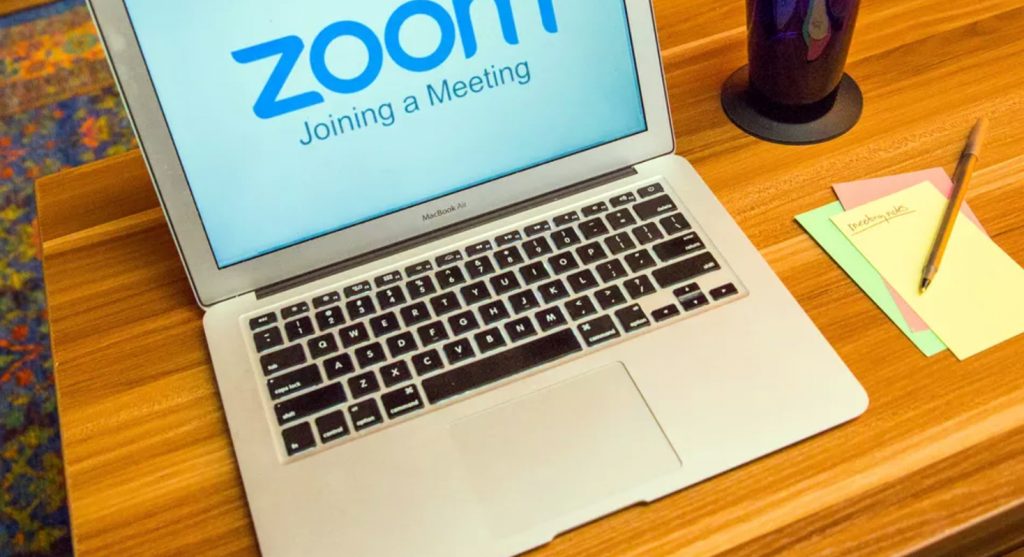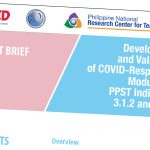How RCTQ gears up for the ‘new normal’
The present COVID-19 pandemic is forcing on us a ‘new normal’ in terms of social behaviors and in conducting our work. RCTQ is ready to shift strategies that show adaptation, flexibility and new ways of communication and collaboration.
Alternative work arrangements
 Since remote work is going to be more widespread than it was before the pandemic, RCTQ built on the guidelines provided by the Civil Service Commission (CSC) and the Philippine Normal University (PNU), its host institution, to implement alternative work arrangements during the pandemic, foremost of which was on working remotely from home. In fact, since the enhanced community quarantine (ECQ) was implemented in Luzon on 17 March 2020, staff have been allowed to work from home.
Since remote work is going to be more widespread than it was before the pandemic, RCTQ built on the guidelines provided by the Civil Service Commission (CSC) and the Philippine Normal University (PNU), its host institution, to implement alternative work arrangements during the pandemic, foremost of which was on working remotely from home. In fact, since the enhanced community quarantine (ECQ) was implemented in Luzon on 17 March 2020, staff have been allowed to work from home.
“The unprecedented nature of the situation we are in right now warrants more creative ways of organizing our work, ensuring that we deliver outputs on time while protecting the health and wellness of our workforce,” said RCTQ Director Dr. Gina Gonong.
When the government lifts the quarantine implementation, and depending on the succeeding guidelines by PNU and CSC, RCTQ prepares to apply other arrangements such as maintaining a skeletal workforce, and alternating work from home with actual work in the office in Manila.
Continuing work with partners
This pandemic has also allowed RCTQ to rethink how to organize work sessions including with partners at the Department of Education and the Australia-based SiMERR National Research Centre at the University of New England (UNE). The use of video conferencing platforms such as Zoom, Microsoft Teams and Skype has redefined the way we communicate and interact not only among staff and the Center management, but with important partner institutions.
RCTQ’s partnership work with UNE-SiMERR was characterized by both Internet-mediated communication and physical travels to the Philippines, but this pandemic has made virtual meetings between the two research centers more frequent than ever.
“This situation is challenging our flexibility, and I am amazed at how we can redefine work in the ‘new normal’,” said Deputy Director of UNE-SiMERR Dr. Joy Hardy. “We can interact realtime, we can make presentations and debate about them, we can build consensus, and we can continue to work constructively with each other through online group meetings.”
‘New normal’ behaviors
The COVID-19 pandemic is bringing an end to our old office lives in favor of new behaviors aligned with public health awareness, sanitation consciousness, and social distancing at work.
Social distancing will be the guiding protocol when RCTQ staff resume reporting to office. The RCTQ office at PNU will have to be rearranged/redesigned to comply with these protocol. Physical meetings, for instance, will see staff seated at least a meter apart from each other, all wearing face masks. Disinfectants will become daily companions next to our mobile phones. And as the traditional handshake loses its place in the workplace, offering a nod or a smile will become an alternative when staff welcome guests or when they greet each other.
Working amidst the threats of the COVID-10 pandemic requires adopting a whole new mindset in order to survive and thrive in the ‘new normal’, and RCTQ staff are well equipped with it in continuing to deliver research work that shapes education policies.
https://www.rctq.ph/?p=1342NewsCOVID-19,New Normal






